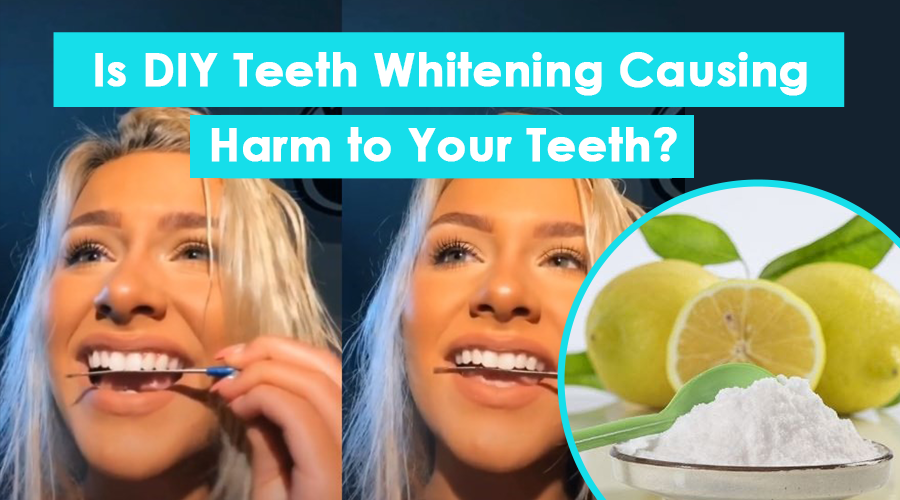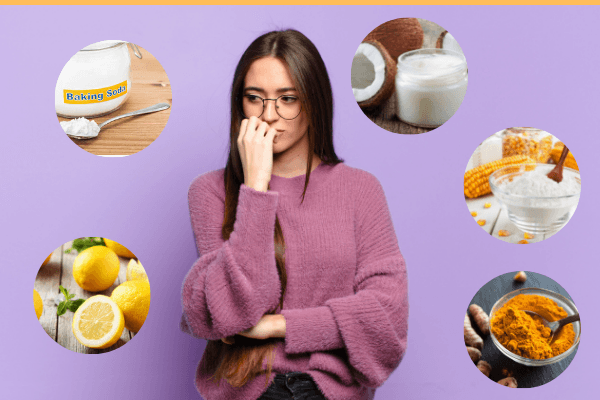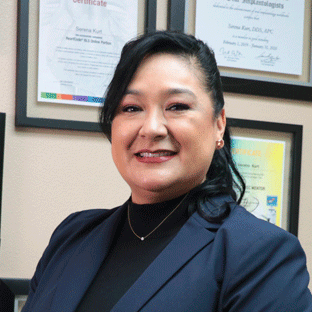There’s no denying that having sparkling white teeth is something we all want. It makes you look great, and it just overall helps your self-confidence.
Since not all people can afford a bleaching treatment, many turn to DIY teeth whitening remedies. If this is your case, we can’t blame you. Most of them are so easy and cheap that it’s very tempting to try them.
However, we need to remind you to keep in mind that brighter teeth do not always imply healthier teeth. If you’re thinking about whitening your teeth, make an appointment with Dr. Serena Kurt, an experienced Clairemont dentist that can give you some guidance on this topic.
It’s a great way to find out for sure what’s true and what’s not, as well as steer you away from trends that may cause more harm than good.
How Is DIY Teeth Whitening Dangerous?
Who hasn’t heard of these popular teeth whitening methods? In recent years, we’ve seen some interesting whitening homemade remedies such as:
- Activated charcoal
- Lemon juice
- Oil pulling.
Just to name a few. These whitening practices, like activated charcoal, baking soda, peroxide, and coconut oil, can be harmful to your gums, teeth, and enamel if you misuse or mishandle them.
Besides, many of the previous remedies we mentioned don’t have enough scientific research to back up their effectiveness, which is something that the American Dental Association has made very clear.
3 Common DIY Teeth Whitening Remedies
Some of the most prevalent whitening trends you’ll find are the following:
Oil pulling
Oil pulling is the use of any type of oil (coconut, sesame, olive, etc.) to whiten and keep your teeth away from cavities. People recognize this technique for removing toxins from the body and aiding with plaque, gingivitis, tooth decay, and bad breath.
The way to do it is by swishing coconut oil in your mouth for 20 minutes at a time before spitting it out. If you ask us, brushing your teeth seems a lot quicker and easier than that. Besides, the American Dental Association has not studied or confirmed this method as a whitening treatment.
Activated charcoal
Charcoal is probably one of the most popular trends in the cosmetic industry. From face cleansers to supplements, to toothpaste it’s pretty much everywhere.
While charcoal has been extensively researched as a treatment for specific types of poisoning or overdoses, it has yet to be confirmed or recognized by the American Dental Association as a teeth whitener.
In fact, though, activated charcoal is pretty abrasive, which means it has the alarming potential to wear down the enamel, resulting in eventual discoloration, tooth sensitivity, and decay.
Whitening fruits
Fruits like apples include malic acid, which increases saliva production and helps to wash out acids. Some tubes of toothpaste even contain bromelain, a pineapple component that helps to give you sparkly teeth.
However, in reality (you know where this is going), there’s no proof that eating these fruits can brighten your smile.
Some even use strawberries, but we highly recommend you skip them altogether. A study found that brushing with a mixture of them and baking soda produced no whitening effects.
What’s worse, they found that the citric acid in strawberries can dissolve enamel, your tooth’s outer protective layer.
Peroxide and Baking Soda, What About Them?
Another recent DIY teeth whitening trend is grabbing baking soda from the pantry, some hydrogen peroxide from the pharmacy cabinet, and bleach your teeth.
People put this to the test based on the fact that in professional whitening treatments, dentists use hydrogen peroxide, and you can also find baking soda in many ADA-approved whitening kinds of toothpaste.
So, of course, they both have the stamp of approval for successfully removing stains.
Despite being true that hydrogen peroxide and baking soda are used in professional and certified whitening treatments, this does not indicate that they are safe to use on our own teeth.
It’s incredibly important to be accurate when using these ingredients because there’s a fine line between applying too little, which won’t give you much of a whitening impact, and using too much, which could destroy your enamel and burn the soft tissues all over your mouth.
As you may imagine, only dentists have the knowledge, training, and materials necessary to achieve that delicate balance safely to get good results.
What Teeth Whitening Options Do You Have?
To reach the maximum whitening results, you should do it correctly and under the supervision of a skilled dentist.
Dr. Kurt can assist you in determining which whitening treatment is ideal for your teeth and discuss how realistic it is to reach the whitening objectives you have in mind.
As a cosmetic dentist in Clairemont, she has worked on thousands of smiles and knows how to achieve the perfect outcome for you.
She can also give you some guidance on how to know which products are safe specifically for your mouth.
Your teeth will be with you forever, and it’s crucial to acquire habits and practices that assist you in preserving them for sure. Otherwise, you could end up with future issues that will hurt your financial stability and mental health.
If you don’t already have a trustworthy dentist, Dr. Kurt is a professional who is committed to following the American Dental Association Principles of Ethics and Code of Professional Conduct.
Give us a call and set up an initial appointment to learn more about professional in-office whitening treatment and get the smile you’ve always wanted.





Leave a Reply